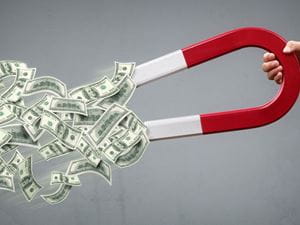
It is official, Americans have the highest debt in history and it's not a milestone worth celebrating. The Federal Reserve reported Americans accumulated $1.021 trillion in outstanding revolving credit in 2017 and the sadder part of the story is most people aren't overly concerned. This needs to be a wake-up call said Matt Schulz, a senior industry analyst at CreditCards.com, a credit card website. “Even if you feel your debt is manageable right now, know that you could be one unexpected emergency away from real trouble.” Consumer debt is eating at the infrastructure of lives and the consumption is killing your bank account and your health. The American Psychological Association (APA) found almost three-quarters of Americans are experiencing financial stress. For the majority of Americans (64 percent), money is a somewhat or very significant source of stress, but "Especially for parents and younger adults 77 percent of parents, 75 percent of millennials and 76 percent of Gen Xers," the APA found. The small purchases, the interest rates, eating out and other secret expenses will gladly absorb the cash out of your pocket. If your spending habits are getting out of hand, here are wallet-killing expenses you must contemplate.
Specialty Drinks
Gourmet coffee, specialty coffee, tea or smoothies, all of them are costing a bundle. Although it doesn't seem like it, the average specialty drink is around $5. This may not seem like much, but when you add this up, your cup of Joe could cost an estimated $700 or more a year at your favorite coffee shop. If you’re a Starbucks junkie, then you better bump up the price. Start buying your own ingredients and instead of a Starbucks Frappuccino, go for an iced latte. Jeff Rose, the creator of Good Financial Cents, suggested on his website to start purchasing Starbucks beans and brew them at home. "It can save you upwards of $1200 per year, and over $1000 if you buy beans from Dunkin Donuts." Some people will spend up to $1,200 a year on their coffee and don't even recognize it. That money could go into a retirement account or into a vacation fund.Watch For ATM Fees
"An unplanned stop at the ATM for $20 will cost nearly 23 percent in fees," Greg McBride, Bankrate.com’s chief financial analyst explained to usatoday.com. He said the highest rate in the country was in Phoenix, costing an average of $5.07 per transaction and this all adds up during the year. Instead of using ATM machines, try getting money back when you make a purchase at the grocery store. There are places that offer free cash-back services when paying with an ATM card. Trader Joes, Staples, Whole Foods, Walgreens and Walmart offer this service. There is a limit on what you can take out, some only allow up to $50 per transaction. Plan the week out the best you can for gas, food and other items and withdraw the money in the beginning of the week. Also, the Allpoint App can locate surcharge-free ATMs to use across the country.Refuse High Car Payments
The car payment is going to drain you. Experian reported Americans are making huge car payments every month. The average auto loan is $30,032 and the average car payment is $500 per month. Some loans can go up to 84 months, which by the time you are done paying for it, you will need another car. "This is kind of the natural evolution we would expect in conjunction with vehicles costing more," Melinda Zabritski, Experian's senior product director of automotive finance told CNBC. If a family has a couple of those car payments, the results are a thinner wallet, especially if you're buying cars you can't afford. Refuse to buy a new car that depreciates in value and opt for a used one.Stop Buying Lunch
Americans spend over $3,000 a year dining out for lunch and this doesn't count the food deliveries. This is up from a 2015 report where the average American consumer spends roughly $53 a week or $2,746 per year on lunch. According to a new Workonomix survey by Accounting Principals, two-thirds of "Working Americans buy their lunch instead of packing it." Instead of grabbing a hamburger during lunch, bring your own lunch to work and refuse co-worker invites to suppress the temptation. Make more than enough food at home and then brown bag the leftovers. Keep crackers with peanut butter, nuts, granola or soup at your desk to curb hunger.Cut the Cable
Really, why pay for cable? The Federal Communications Commission reported the average monthly price of expanded basic service is $103 a month. There are better ways to enjoy entertainment and at a competitive price. Yes, it means the possibility of giving up your beloved shows. But there are so many shows you can watch online for free on Hulu and on YouTube. Amazon and Netflix have movies, television shows and other original programs that cost an average of $20. There is also Dish Network’s Sling TV, PlayStation Vue, and other online streaming companies. HBO launched its own streaming service and many others jumped onboard. You can subscribe to stand-alone services or add HBO, Cinemax and Starz and others to your Roku account for an extra fee. All the money that you're saving from skipping the cable could be put into an emergency fund or be used to wipe out debt.It doesn’t take much action to save money, but it does take self-control. Paying off debt is never easy and yet, when you discover the money that you will be saving, it can be an easier financial road for you. Set goals on what bills to tackle first and what expenses to cut out like your afternoon coffee rituals or weekly lunches out. This will help you save if you’re going to need to replace the car or help pay for surprise expenses in the future. Experts urge people to have an emergency fund with 3–9 months of living expenses if they lose any income.

